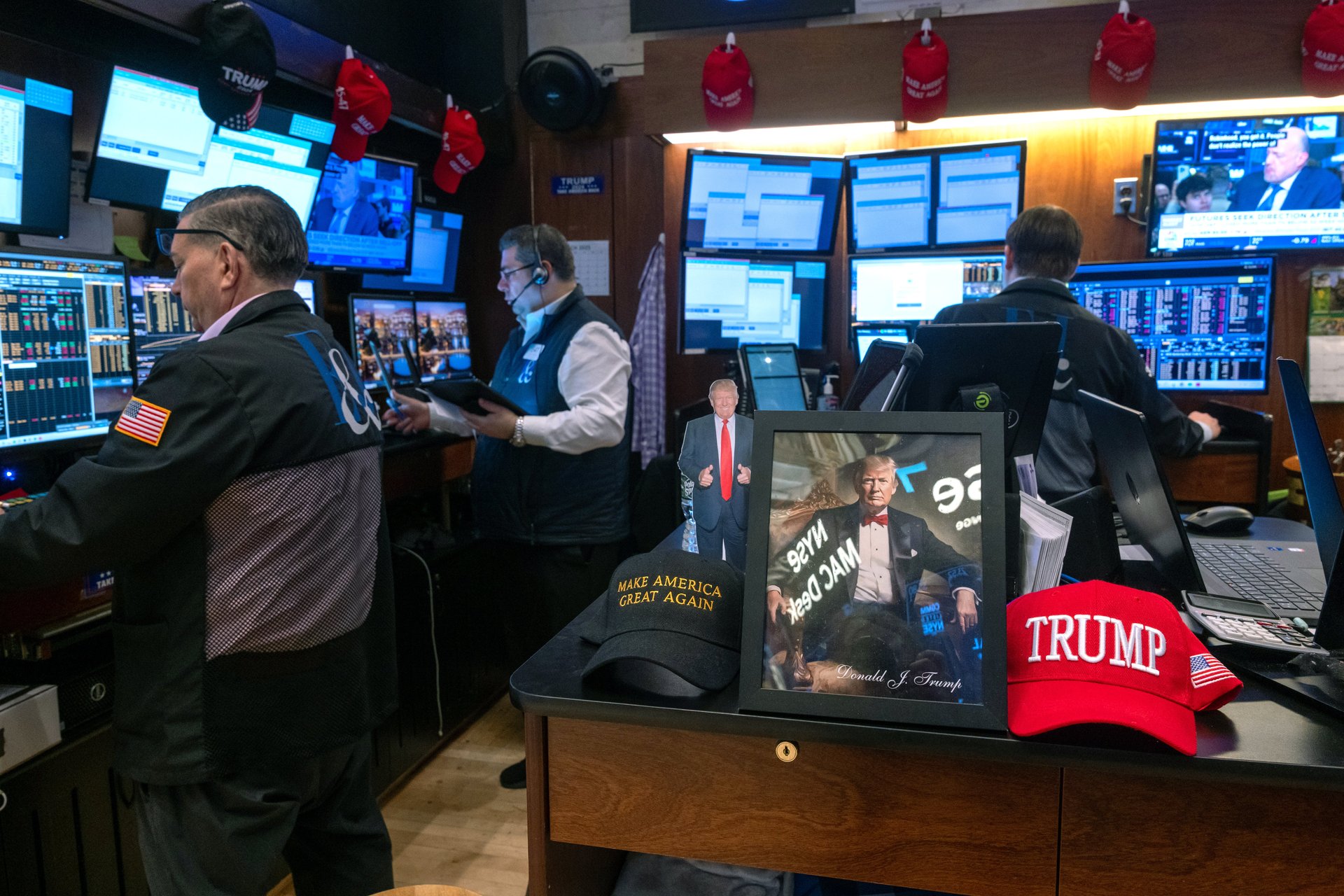Stocks will be volatile until the cost of Trump's tariffs become clear, strategist says
One good inflation report isn't enough to offset big economic uncertainty

Investors will need to have a sense of the cost of Donald Trump’s tariffs before the U.S. stock market finds a bottom, Empower’s chief investment strategist said, as reflected in the modest rebound in stocks after today’s better-than-expected CPI report.
Suggested Reading
“I read the day one executive order on trade — it struck me that these tariffs are permanent features, not a negotiating tactic,” Marta Norton told Quartz. “The impact of the tariffs aren’t as easy to trace as you might think,” as shown by the now-suspended levies on the electricity Ontario sends to the U.S.
Related Content
Trump has injected a lot of uncertainty into markets with the tariffs, and expect a lot of volatility until that’s digested, Norton said. Even after the recent selloff, U.S. stock valuations remain high by historical standards, so there’s a lot of room for equities to decline.
The S&P 500 was up about 0.8% and the Dow Jones Industrial Average about 66 points, or 0.2% as of 1:30 p.m. in New York. The Nasdaq did better, up about 1.6%, led by gains in Tesla (TSLA), Nvidia (NVDA) and chip stocks. Intel (INTC) gained after Reuters reported that TSMC (TSM) approached Nvidia, AMD (AMD) and Broadcom (AVGO) to set up a joint venture to run Intel’s chip foundries.
The trade war won’t be helpful for inflation — every little bit counts when seeking to slow price gains — but the impact isn’t straightforward, according to Norton. For example, construction costs will probably rise because of duties on construction materials, but that may not affect shelter prices.

The uncertainty means that the slide in U.S. equities may not represent a buying opportunity, especially given that valuations remain above average. “We’re hardly in 2022 again,” Norton said. “Maybe if you’re underweight it’s time to increase exposure, but not sure I’d be doubling down otherwise.”
The selloff may not trigger an about face from Trump, given praise from unexpected quarters, including some labor unions. Norton said. “It struck me that there’s a distinction on what the investment community thinks and what Trump’s audience is — investors may not be Trump’s audience on this one.”